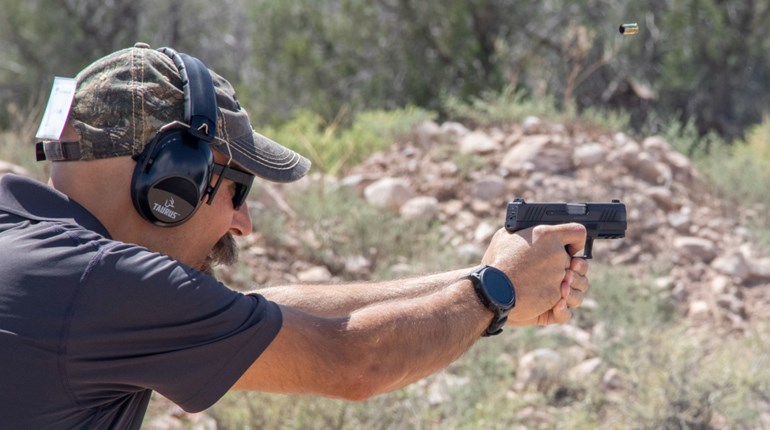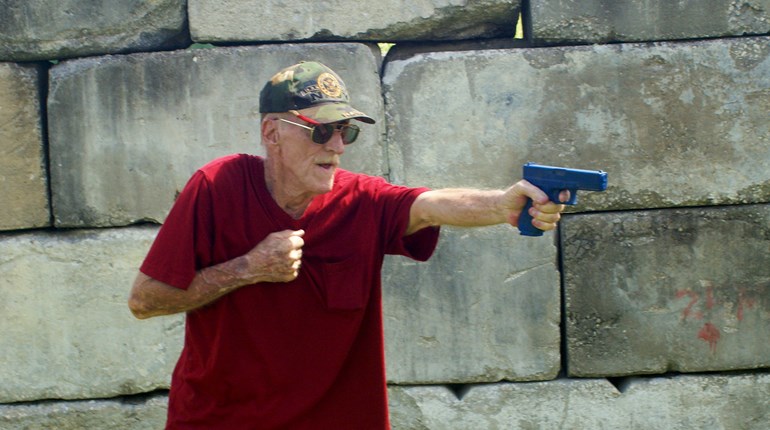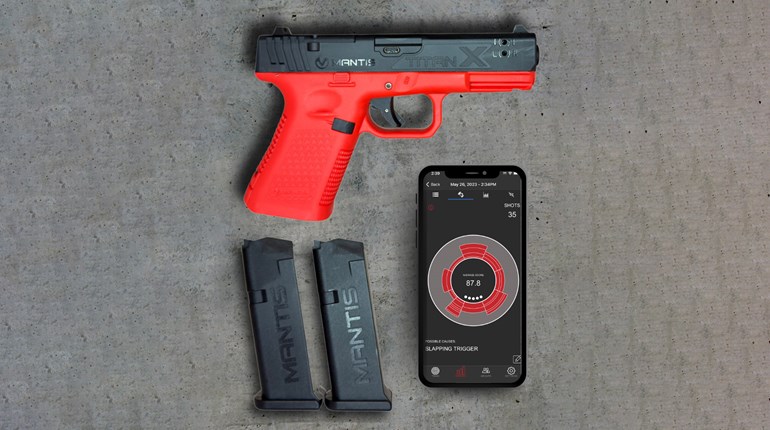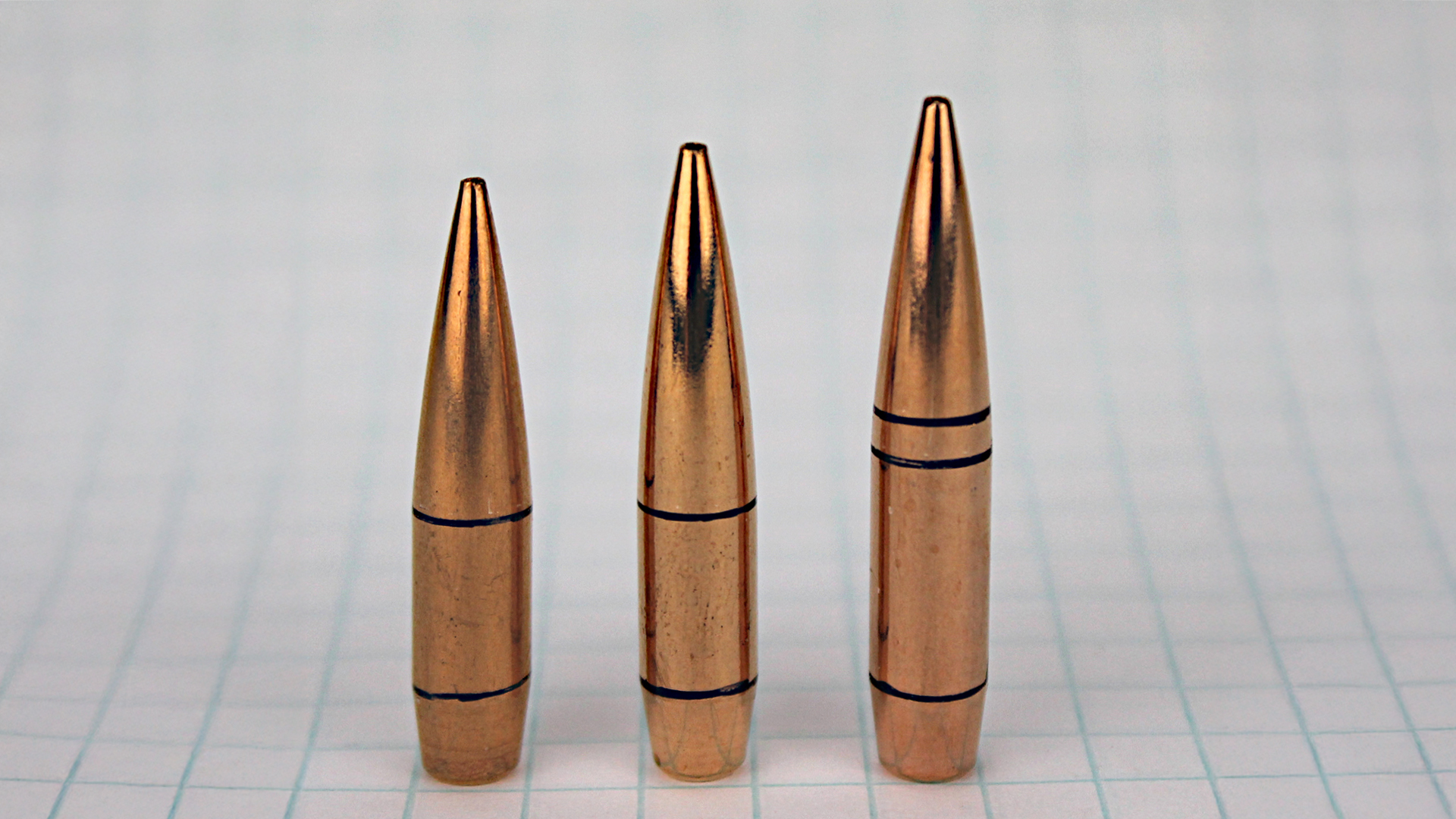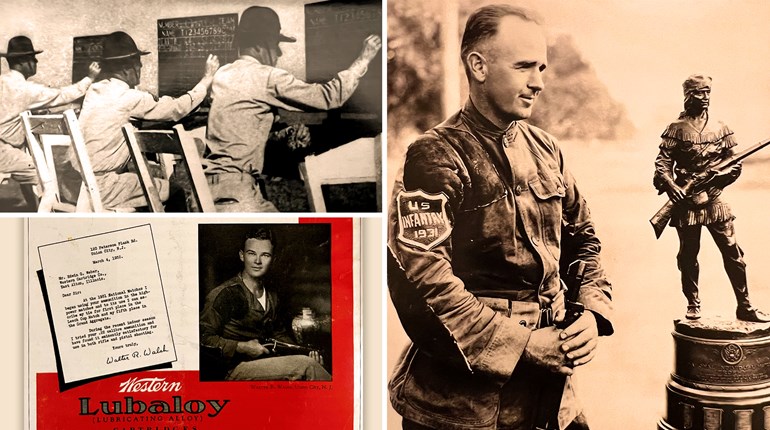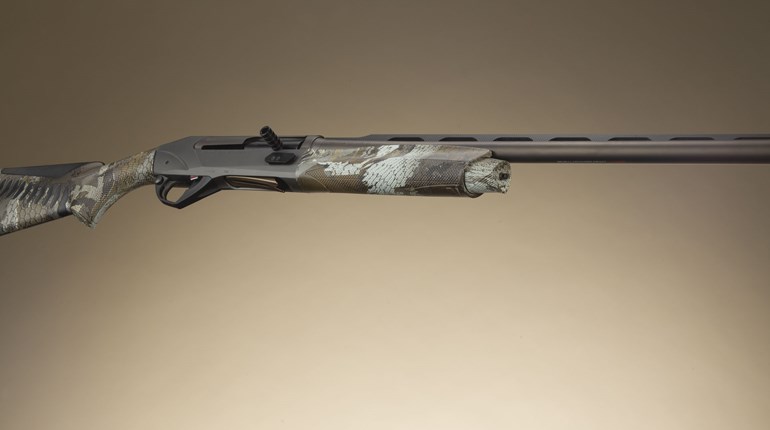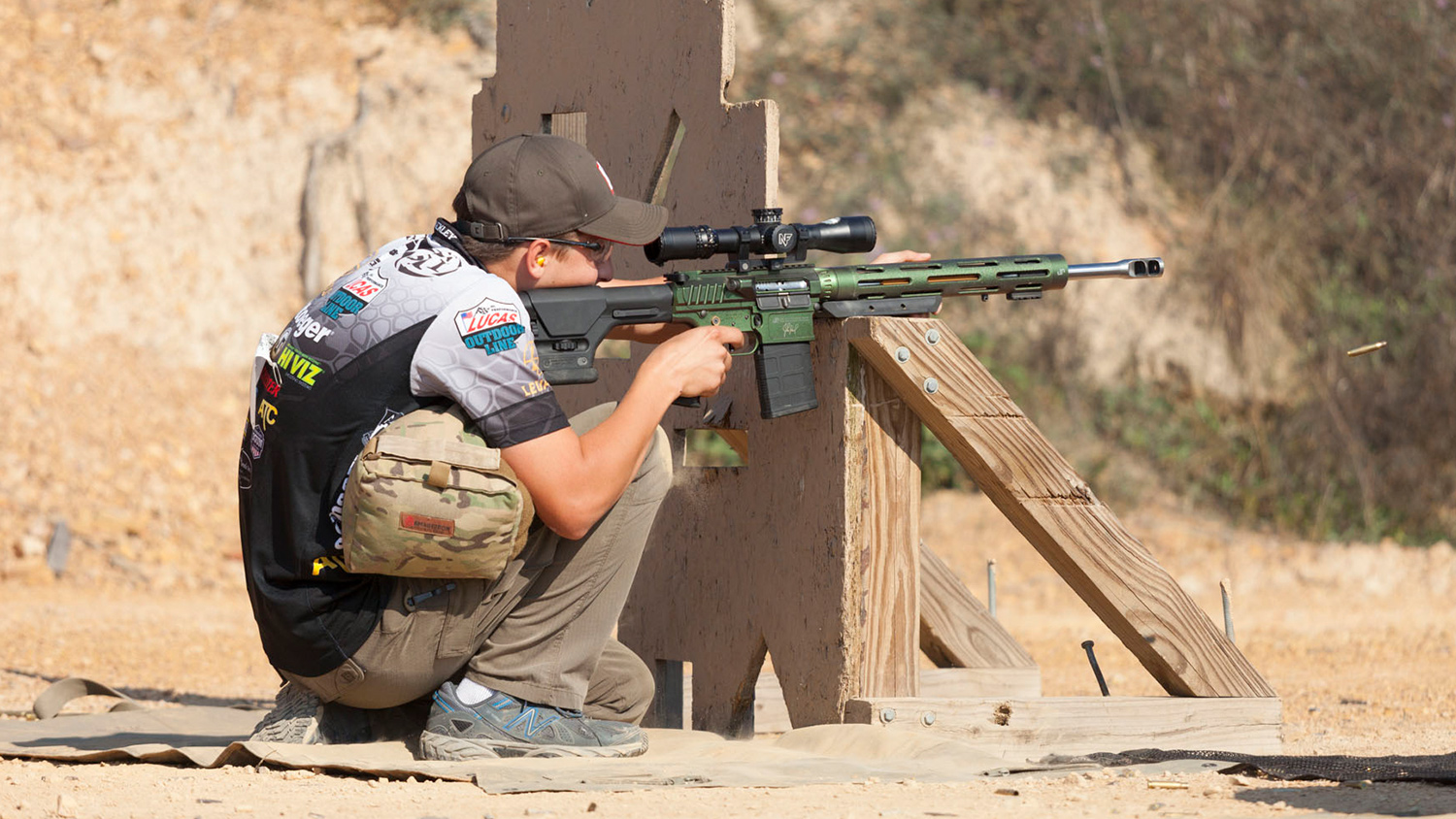
We invest a great deal of time, money and effort in our shooting. Firearms, ammunition and accessories are carefully selected and protected. Trips to the range or across the country for a competition are planned. No detail is overlooked. Is that really true, though?
Have you ever stopped to consider what you take with you to shoot? No, we’re not talking about your equipment. What is it you take with you in your head and in your heart?
If you are like many shooters, you approach shooting, especially competition, with a mixture of excitement and desires, fear and doubt—thoughts about how to handle the shooting session, optimism or pessimism and a host of other conflicts and feelings. It is quite a mix of baggage, isn’t it? Sadly, it does not help us perform well at all.
Where do all these feelings come from? What are the essential elements that cause baggage? There are three primary sources.
Lack of proper commitment. Most shooters come to their game with only one true commitment: to look good and not embarrass themselves. The desire for the approval of others is so basic and deeply ingrained that they often aren’t even aware of its existence. Because this desire is such a fundamental part of the shooter’s thinking, it weakens or prevents true commitment to the athlete’s other desires.
Constant judgements. Shooters are often full of judgements about themselves, other competitors and the environment. The plethora of negative thoughts that invade often include: that person is better than me, I haven’t practiced enough lately, it’s too cold, hot, wet, dry, dark, bright, windy or rainy to shot well, my gun or ammunition isn’t up to the job. The constant flow impedes good performance and stifles enjoyment.
On the verge of upset. As if the first two sources of baggage aren’t enough, there is an even larger issue looming—the fear of failure. We may be feeling good today and shooting well, but the fear is constantly lurking. Sure enough, a couple of bad shots come and we are completely undone! While we are shooting, we are in fear and are often only two shots away from being totally unnerved.
Breaking the cycle
With this much luggage, it’s no wonder so many shooters have problems improving and enjoying the sport. As one of my young friends once said, “We have enough baggage in life, why carry any to the firing line with us?” How then do we go about breaking the cycle?
Appropriate commitment. Think for a moment about a fundamental question, “Why do you shoot?” We each have our reasons. It’s important to commit yourself to the enjoyment, the learning and the aspects of the game that most appeal to you. People will like you just as much, even without you worrying about what they think. Commit yourself to the “doing” of the sport. Just “be” and “do” and your enjoyment will grow. Interestingly, your shooting will improve. Make up your mind and act.
Extrospection and proper introspection. A significant component of choking is self-conscious introspection. Concerned with outcome or other aspects of the competition that are outside the athlete’s direct control, the athlete becomes self-conscious, no longer trusts themselves, and takes over-active control of the process. This is the kiss of death to your shooting results. Instead, look outside yourself and, paradoxically, also look inside yourself in positive and helpful ways.
Though extrospection is really a medical term with a very specific meaning, it takes on a much broader meaning in this context. Here it is meant to be the opposite of introspection. Notice the range, the other shooters, officials and others at the competition or training. Take time to talk with them, note the weather and actually notice what is going in your preparation, setup and shooting. It’s important to be aware, not judgmental or critical. Look with the eye of an artist or dancer, rather than the eye of the mechanic, technician or engineer. Don’t just look, feel what is happening. Feel it with your body and with your heart. After all, it isn’t just your body that does the shooting.
Introspection has its place, but not the controlling introspection that is self-conscious and so deep that a shooter doesn’t notice the performance-shattering affect. Instead, experience the introspection that is aware, free of judgement and criticism, and that senses every nuance of your body’s feel and your emotions. Experience the mode of introspection that is quiet, calm and lives only in the present moment.
Creativity and acceptance
We are taught, teach ourselves or develop a way to shoot. As we improve, our fear of shooting worse forces us to be less likely to deviate from our learned methods. It’s in the trying to always hit the center, break the clay or tip the silhouette that we limit ourselves. Get creative to really learn to shoot. Allow yourself to make mistakes and learn from them. This will lend insight into how to hit where you want.
For example, shotgun shooters who learn the next day’s forecast is for high or gusty winds, need to double their training time instead of simply cancelling it. While many shots will be missed at first, allowing yourself to calmly continue—without regard to the outcome—will open your senses to learning how it all really works. Before long, you will begin breaking targets in challenging conditions, leaving your competition to shake their heads in wonder. Calm days will become unexciting, but you will enjoy them much more. On those days, you will own the targets. Eventually, you’ll own them in the wind, too!
Similarly, shoot rifle in the wind without making compensation for the conditions in order to learn how much the point of impact is affected by each condition. You will do a better job in competition when you really have to hit the mark. By always training to hit the center, and focusing on that alone, you limit your ability to learn the wind. You will then do a better job of making the adjustments necessary to keep you shots in the middle.
In order to do these and many other types of training, you must accept that your score will go down. It is training, you are learning; of course your score will go down. You are building skills. If your score doesn’t go down when doing some of these types of things, you aren’t really doing the drill and you are probably cheating yourself of a golden learning opportunity.
Moving beyond
All these ideas are rather specific. How do we get a more broad perspective?
Stay alert. How often do we tune out during our training or competitions? What are we missing? How might it have helped us learn and improve or increased our enjoyment of the sport? Instead of looking for something wrong that needs to be fixed, notice what actually happens. Then you will really gain insight.
Be open to the possibilities. How often have you had thoughts like, “I shot poorly the last time I was at the range or competing against this team. I hope I don’t blow it again.” Or maybe the opposite, “I like shooting on this range, I always do well here.” In the first situation, aren’t you setting yourself up for failure? In the latter, aren’t you opening the door to the possibility of relaxing too much, or trying too hard to repeat the earlier performance and, either way, diminishing your next performance?
Your past does not predict your future. Many play the game that way though. They either think about a past bad performance and repeat it, or think about a past great performance and wonder why they can’t repeat it. Instead, shoot in the present. You might get a perfect shot. You might get a nice bust of that clay … nothing but dust! You might get a run of 25 straight clays for the first time in your life … or a run of 100. You might earn that coveted silhouette 40-straight pin. Saddle yourself with all the baggage, and the odds are slim you will achieve these things.
All of which brings us to the ultimate question: Why do we fear bad shots?
This question is easy to answer. Bad shots hurt our score, embarrass us, keep us from reaching our goals, cause us to let down the team (or our coach, mom, dad or ourselves), cause us to feel badly and result in unmet expectations … the list is endless. We may have these and many other feelings, but none of them has anything to do with the real reason we fear bad shots.
We fear bad shots because we believe they will happen again, at any moment and likely very soon. This is what we really fear. In our effort to avoid the bad shot, we fall into the traps of low confidence, self-conscious introspection, overactive control and we choke.
Many of my students have heard me say, “Champions do not avoid bad shots; they only make good shots. They reject the bad ones before the trigger is pulled.” We aren’t splitting hairs on this; it really is a different outlook and it really does affect our shooting.
Since your future is not predetermined by your past, imagine what the effect would be on you and your game if you can become open to the possibilities. Defensive shooting is already defeated—defeated by the shooter’s thoughts about the past or what might go wrong in the very near future. Confident, aggressive shooting in the present moment is almost always unbeatable, and a whole lot more enjoyable.
Final thoughts
We make this sport so difficult, yet it doesn’t have to be. Our opponents don’t throw us on the ground or attempt to body check. If our equipment has a glitch, it doesn’t slam us to the pavement and send us praying for our lives as we cartwheel down the main straightway at 180 mph. So what’s the problem? Baggage! Get over it. Just shoot like you did when you were a beginner, carefree, but not carelessly.
These aspects of shooting are rarely discussed in our sport. One of my friends jokingly calls these topics, as well as my related teachings, “fruitcake” stuff. Yet, he admits to witnessing the way this simple approach—as well as the application of related ideas—can transform a shooter’s performance when they employ these principals.
How open is your mind to these ideas and to the possibilities? Take a few moments to think them over and when considered with your approach to shooting, you’ll be surprised at what a positive difference it can make.













